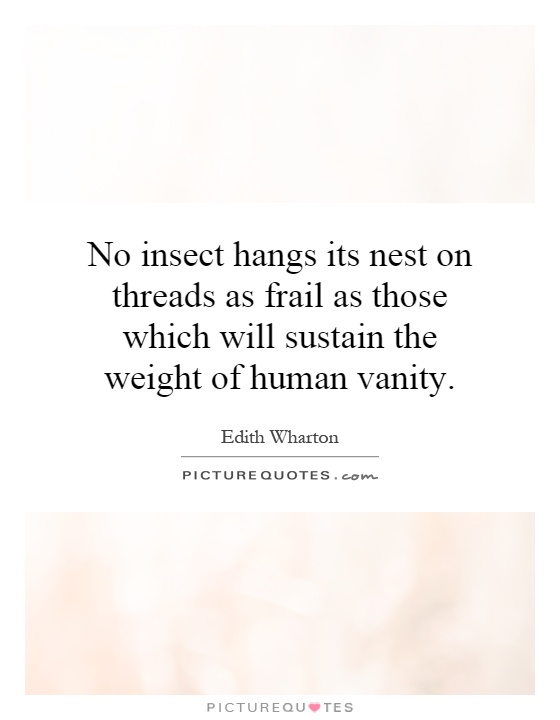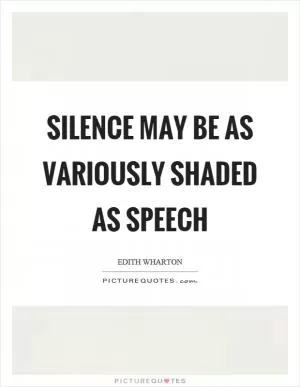No insect hangs its nest on threads as frail as those which will sustain the weight of human vanity

No insect hangs its nest on threads as frail as those which will sustain the weight of human vanity
Edith Wharton, a renowned American novelist and short story writer, was known for her keen observations of human nature and society. In her works, she often explored themes of class, wealth, and the consequences of vanity. The quote, “No insect hangs its nest on threads as frail as those which will sustain the weight of human vanity,” is a powerful statement that reflects Wharton’s views on the fragility of human vanity and the consequences of placing too much importance on superficial appearances.Insects are known for their intricate and delicate nests, which are often constructed with great care and precision. The quote suggests that even the smallest and most insignificant creatures in nature are more practical and sensible in their choices than humans when it comes to matters of vanity. Insects do not waste their time and energy on frivolous pursuits or superficial displays of wealth and status. Instead, they focus on building strong and sturdy homes that will protect them from the elements and provide a safe haven for their offspring.
Wharton’s use of the word “threads” in the quote is particularly significant, as it implies a sense of fragility and impermanence. Threads are easily broken and can unravel with the slightest tug, much like the fragile bonds that hold together a person’s sense of self-worth and identity based on external appearances. Human vanity, according to Wharton, is built on a foundation of shallow and superficial values that are as insubstantial as threads, unable to bear the weight of true worth and character.
Throughout her works, Wharton often depicted characters who were consumed by their own vanity and the desire to maintain a façade of wealth and status. These characters were often portrayed as shallow and self-absorbed, ultimately leading to their downfall or unhappiness. Wharton’s quote serves as a cautionary reminder that true value and worth come from within, rather than from external trappings of success or social standing.












 Friendship Quotes
Friendship Quotes Love Quotes
Love Quotes Life Quotes
Life Quotes Funny Quotes
Funny Quotes Motivational Quotes
Motivational Quotes Inspirational Quotes
Inspirational Quotes